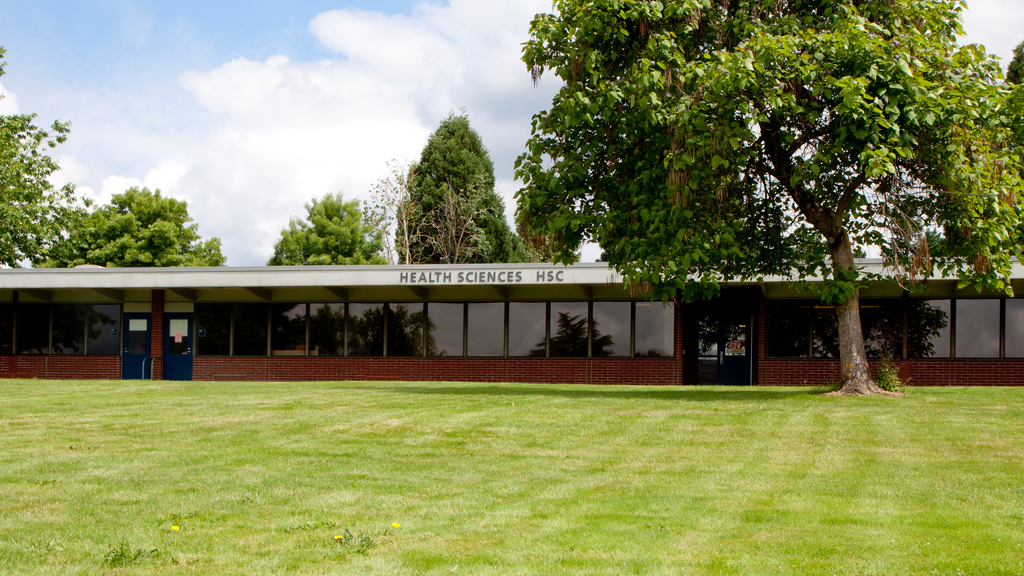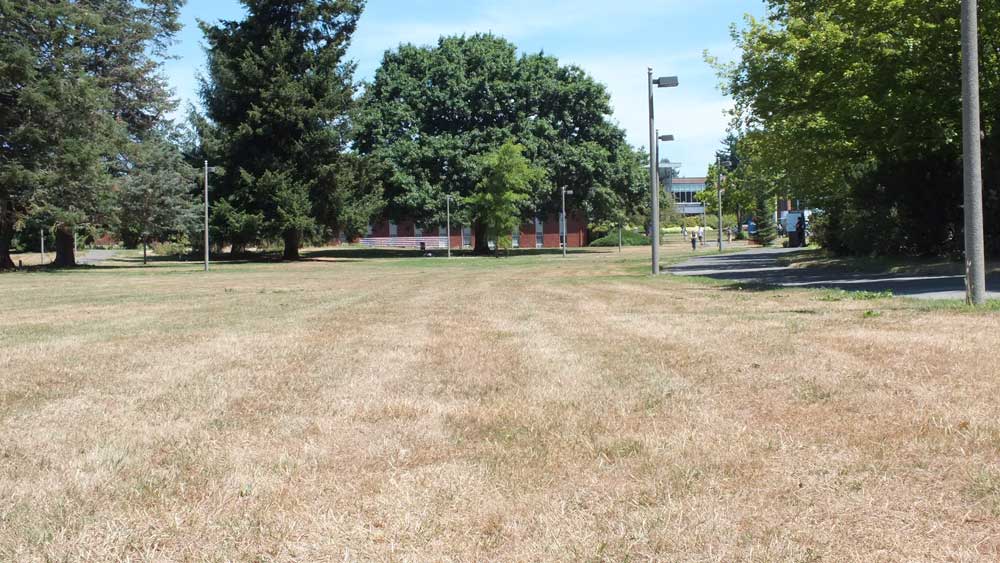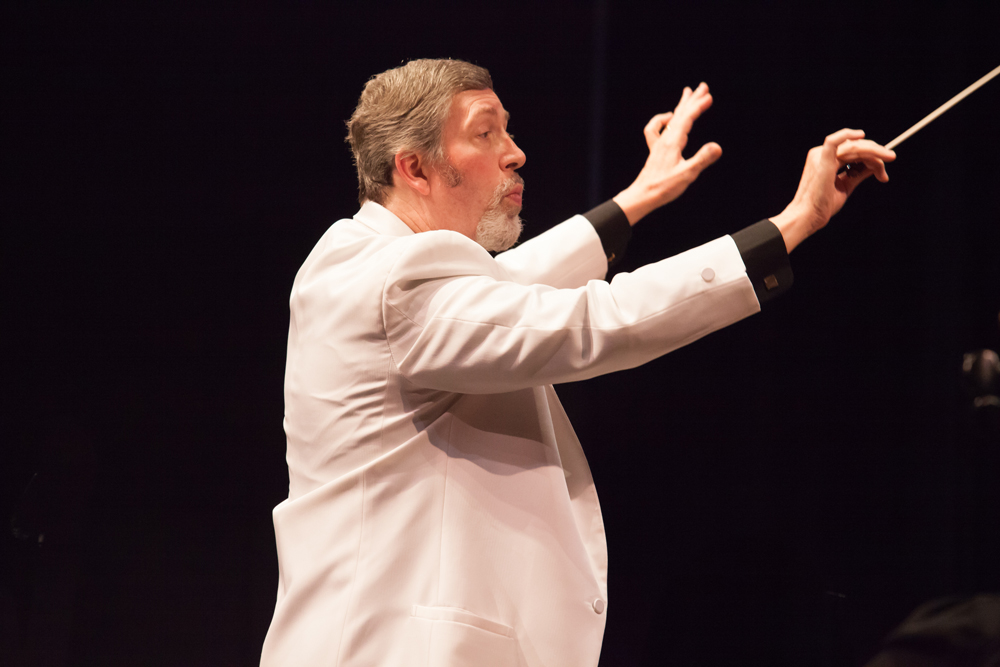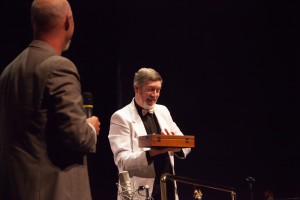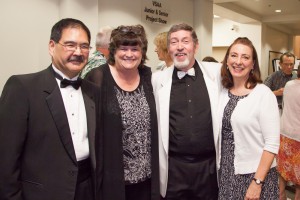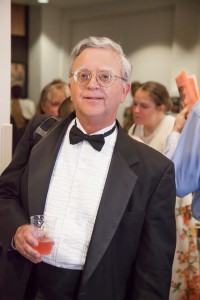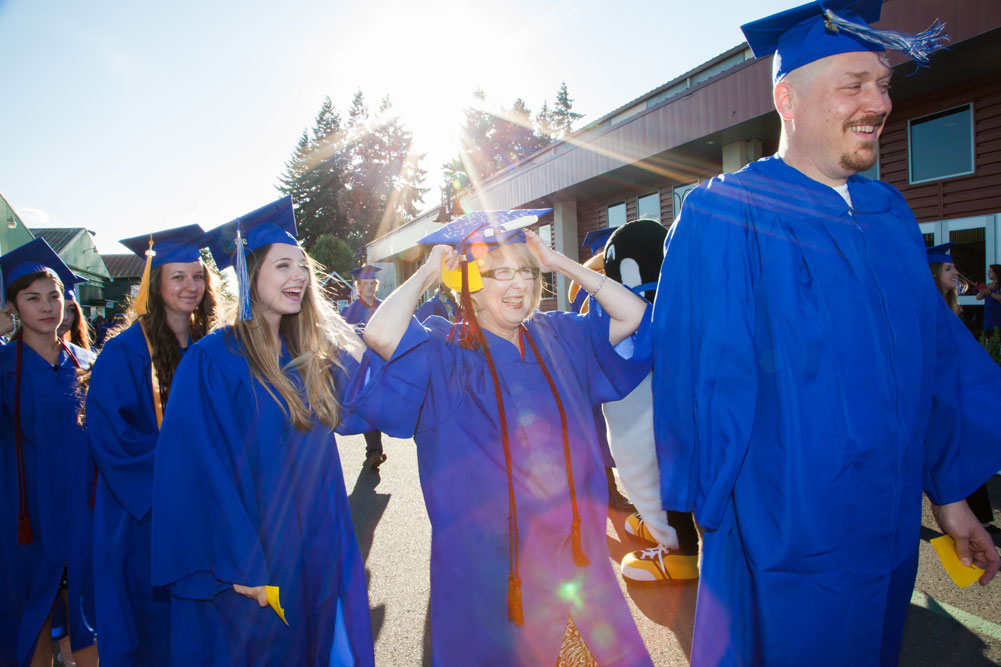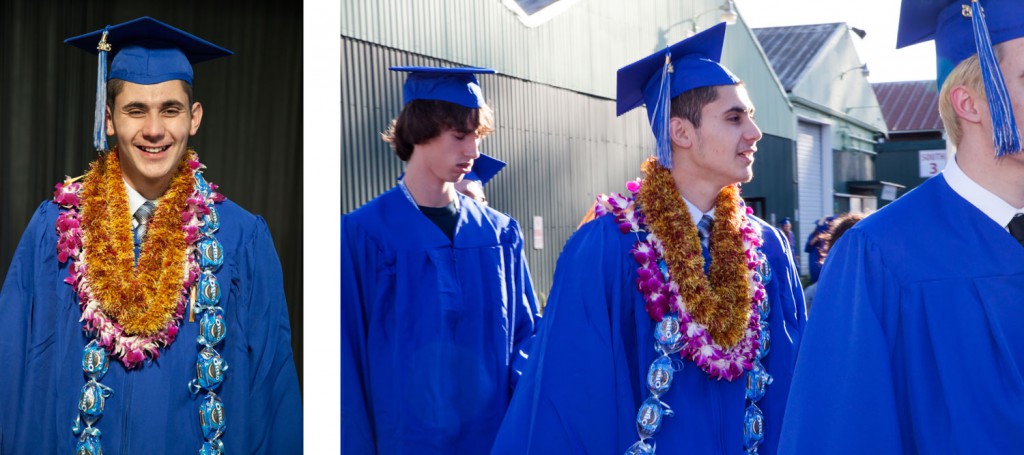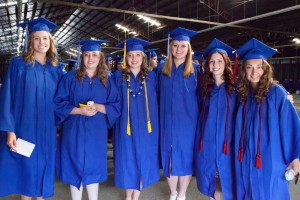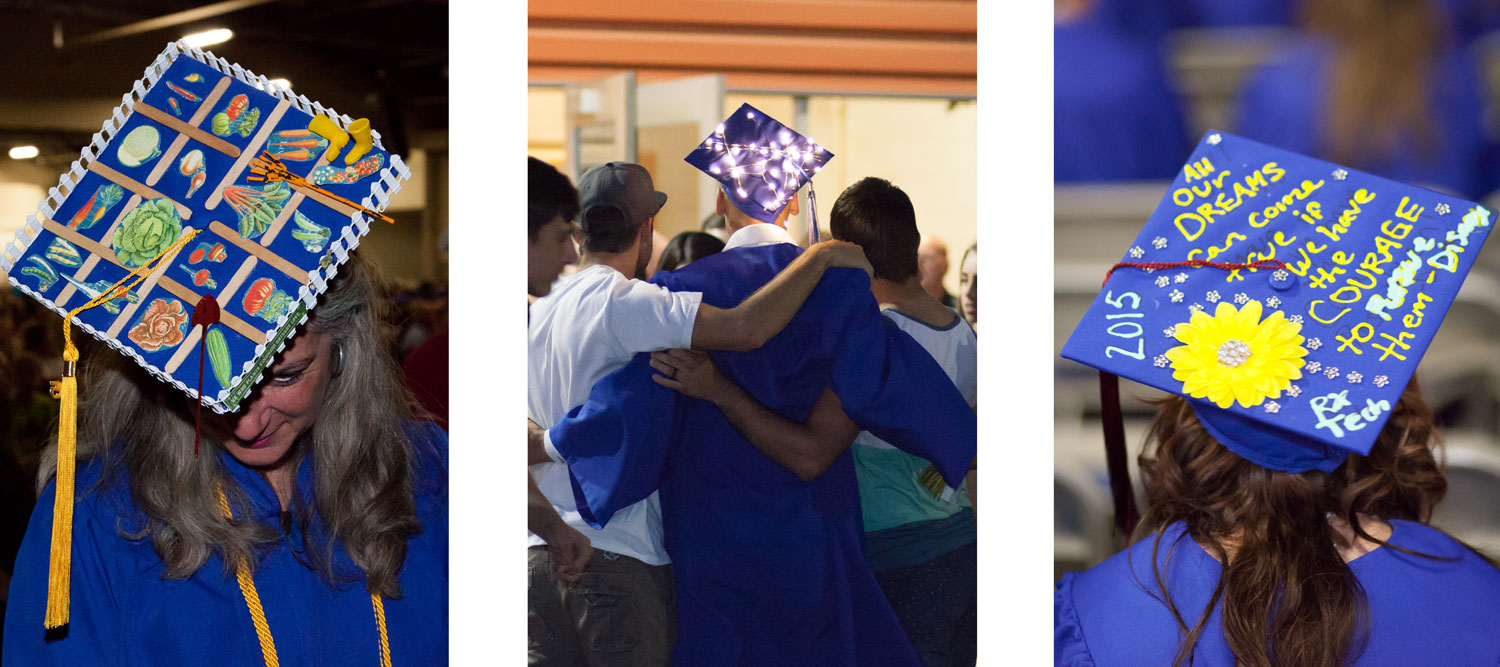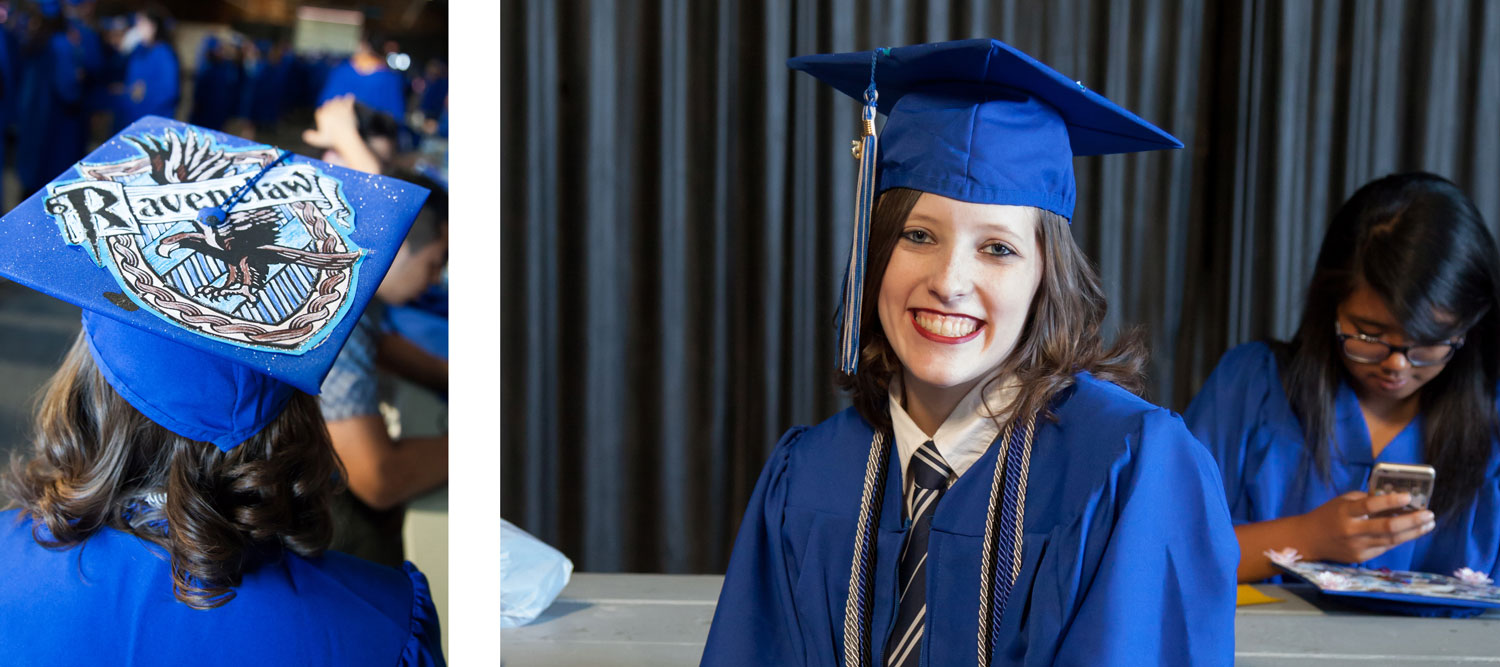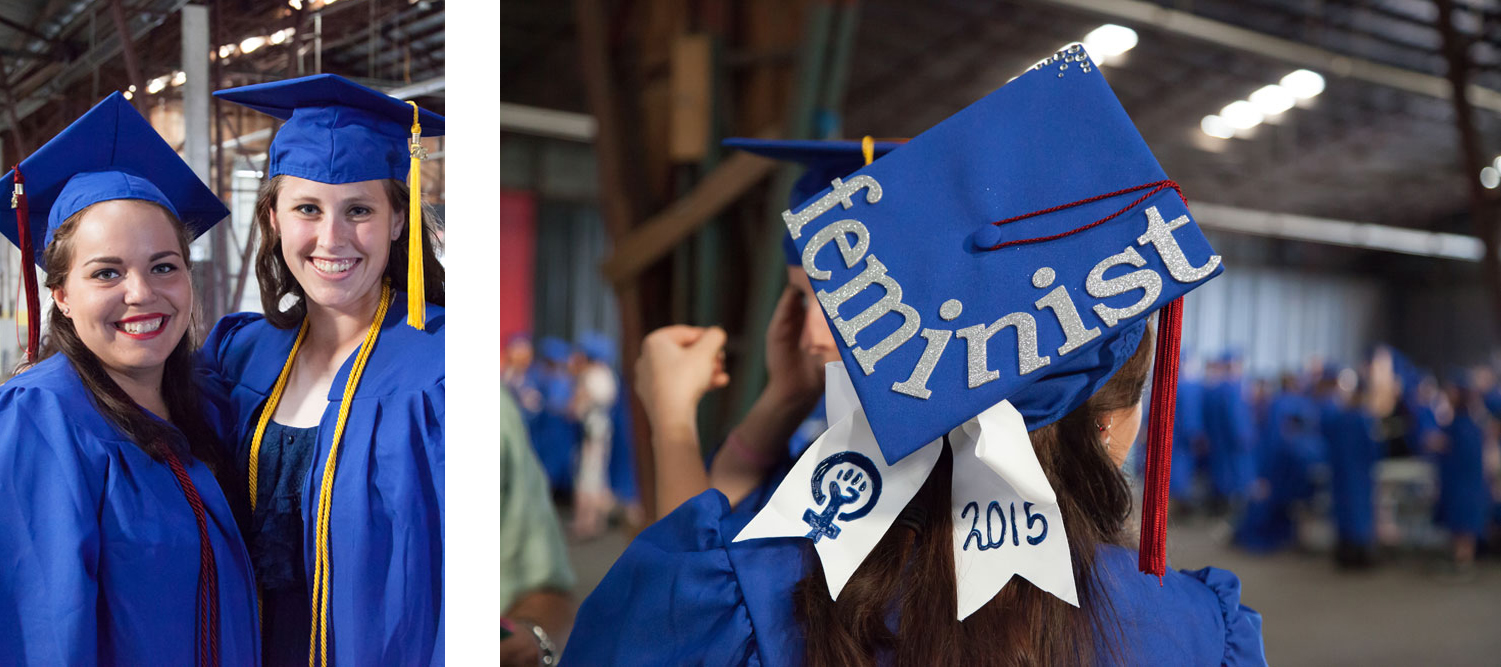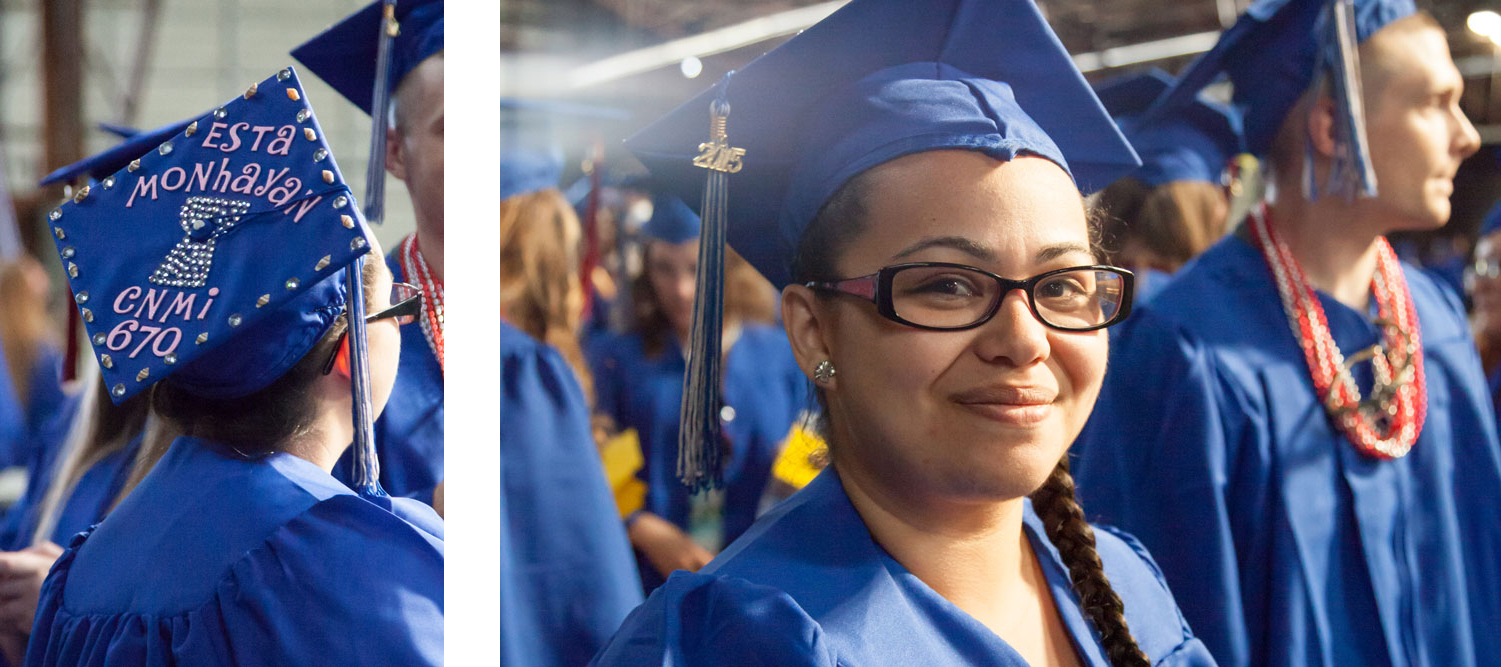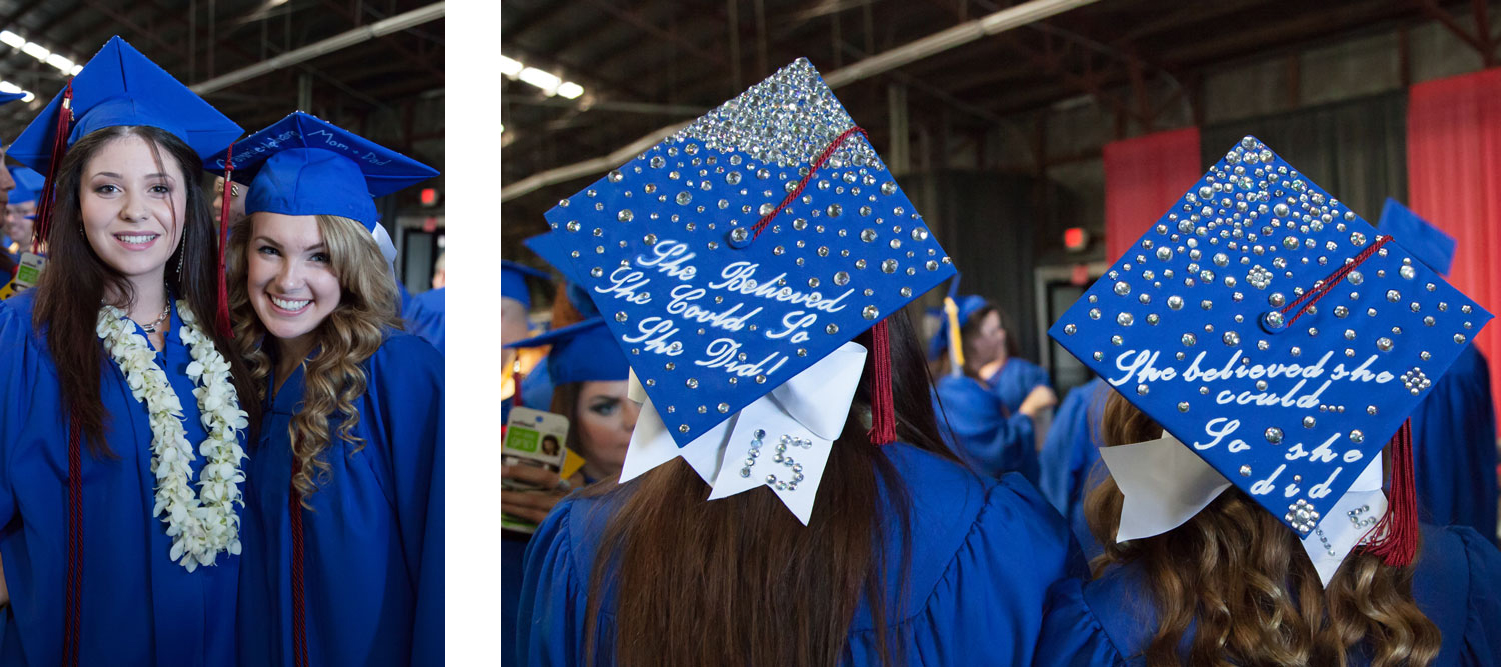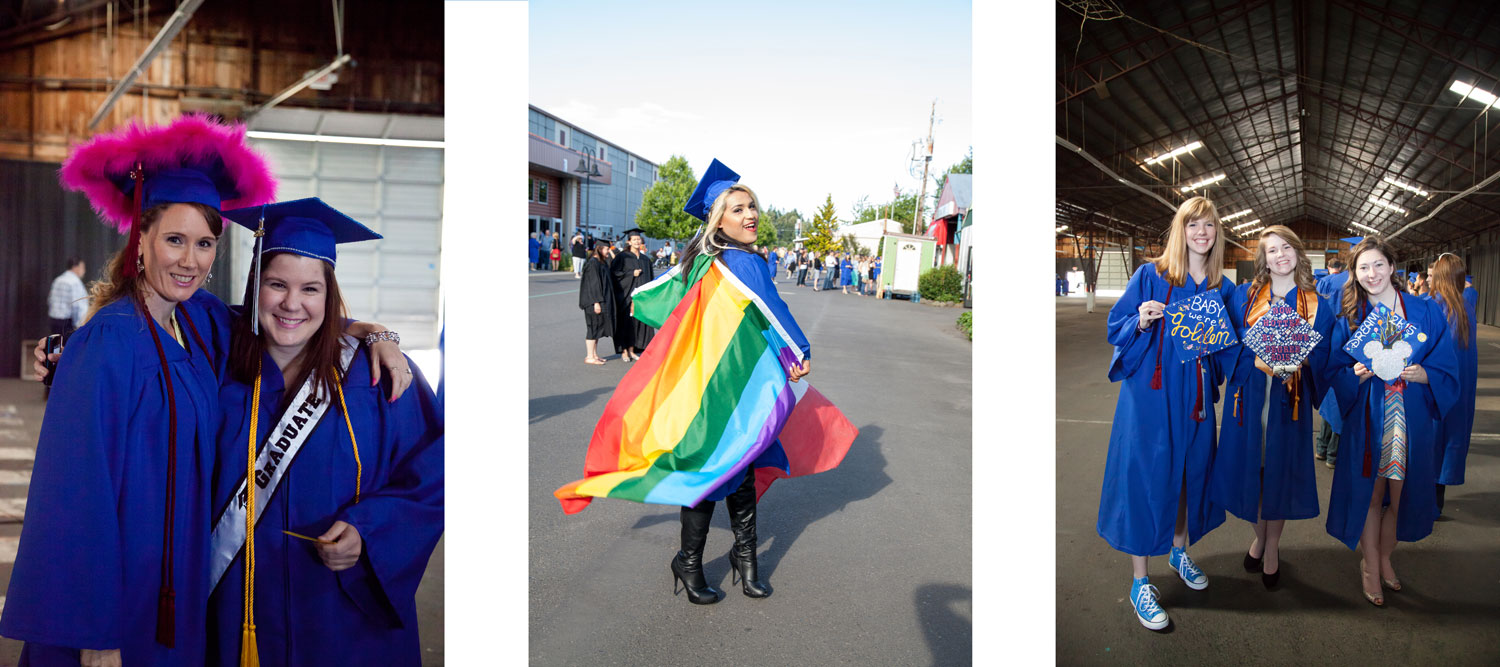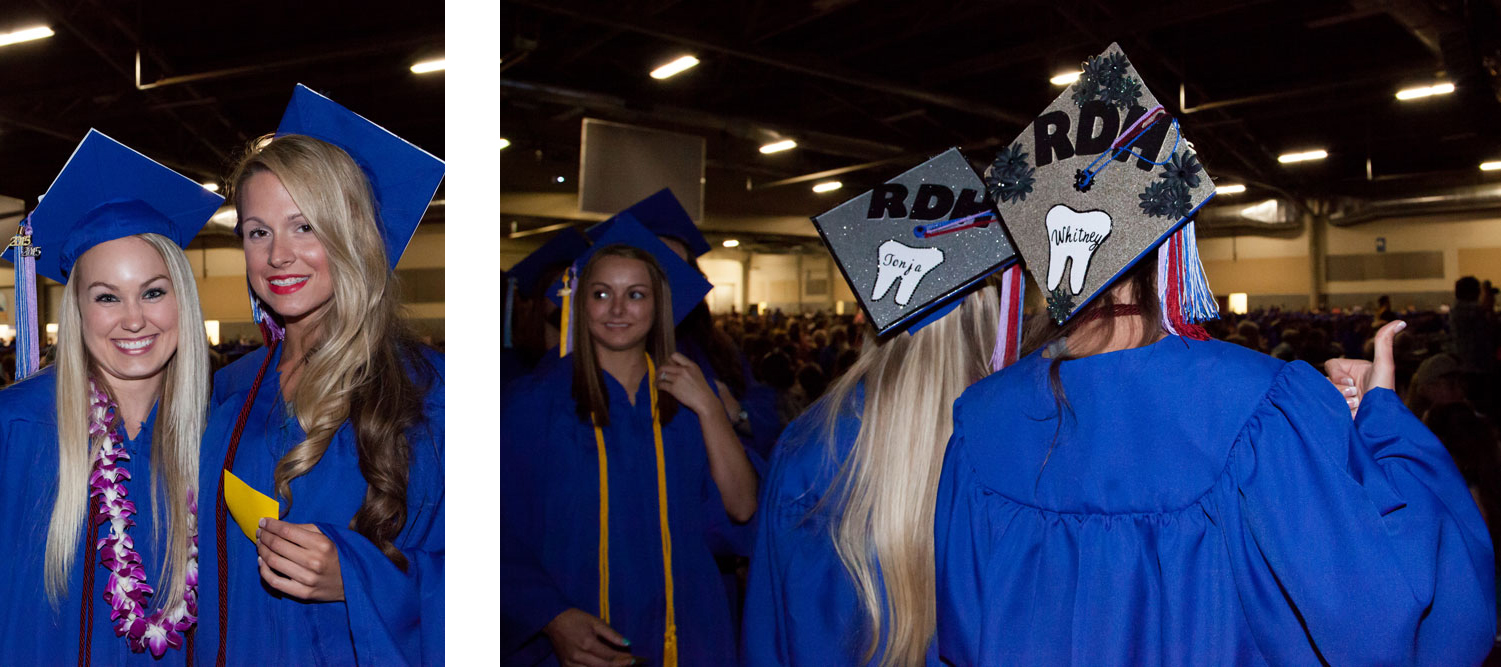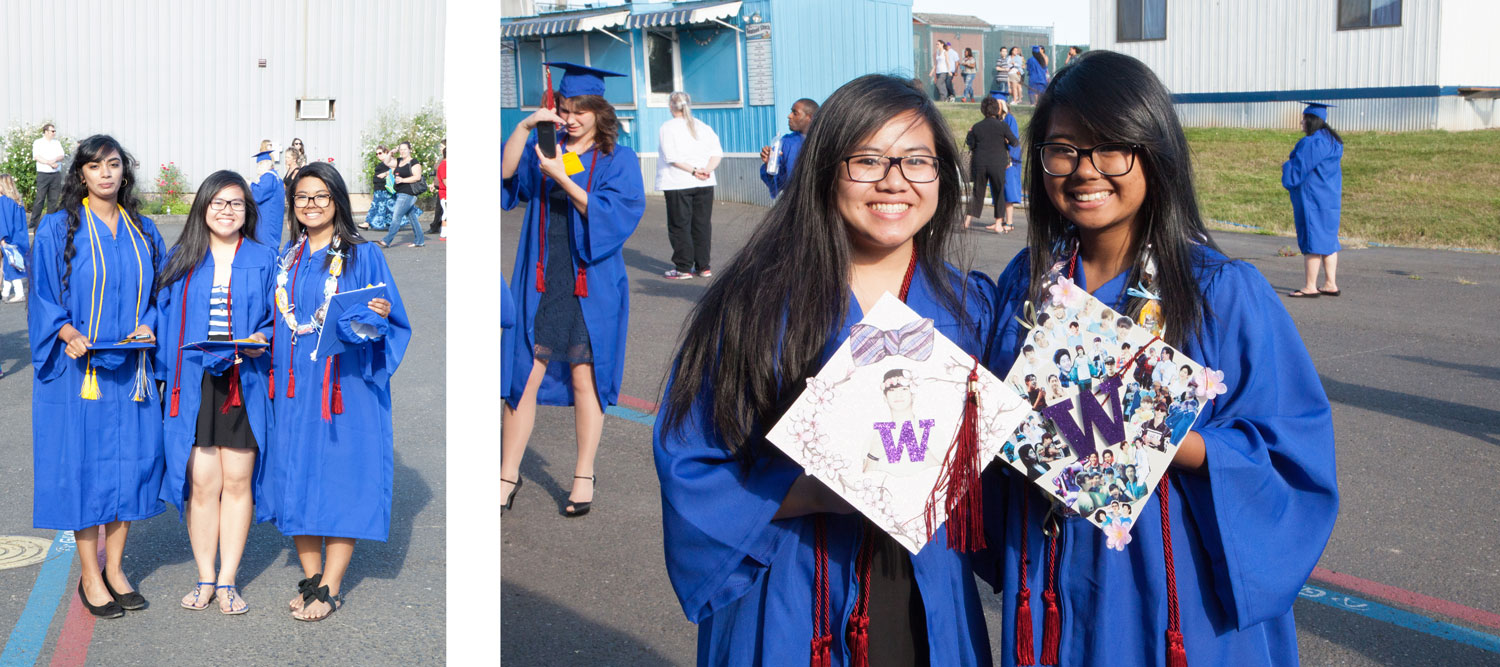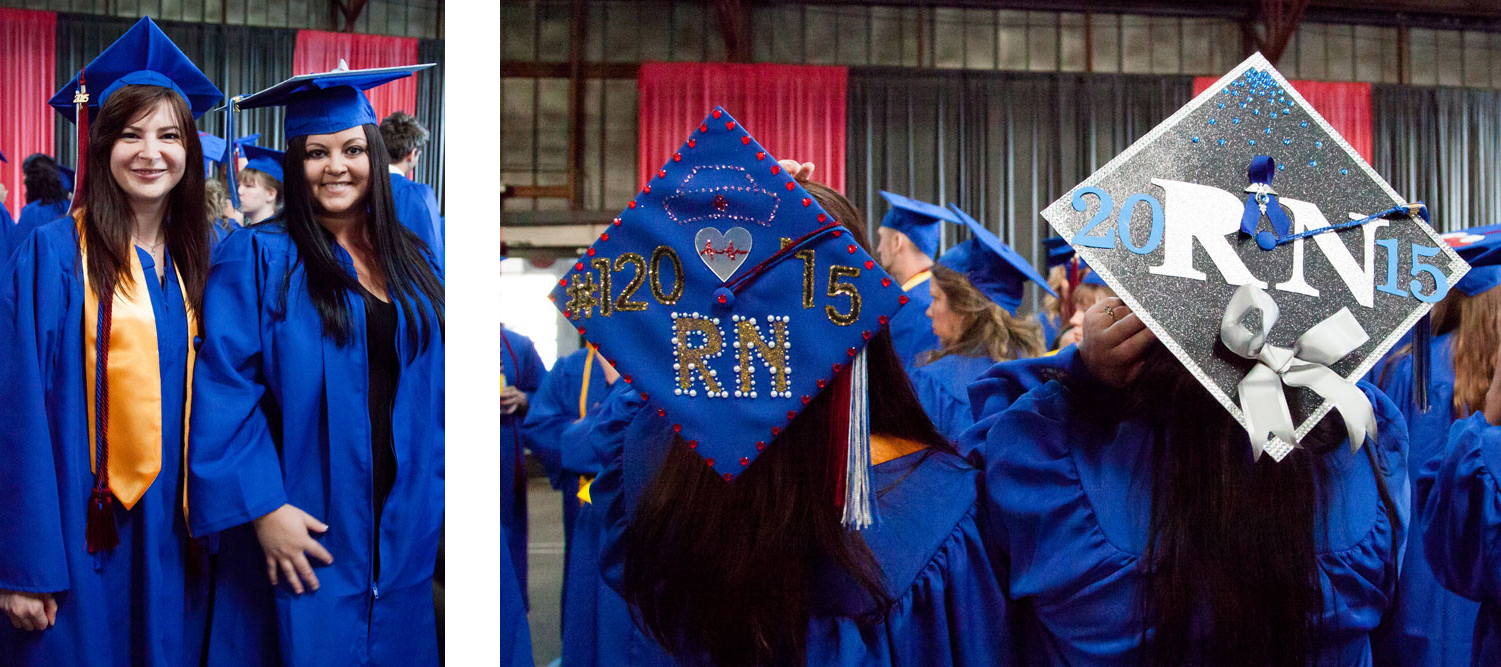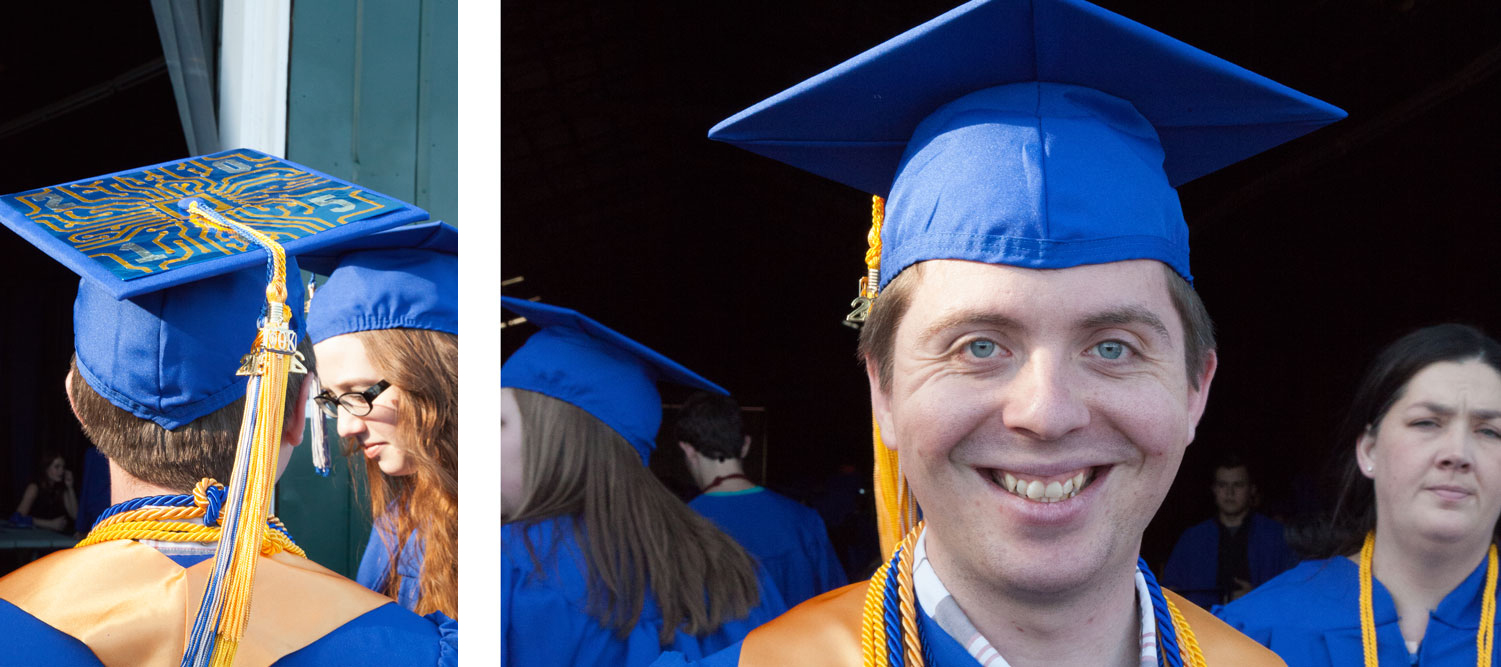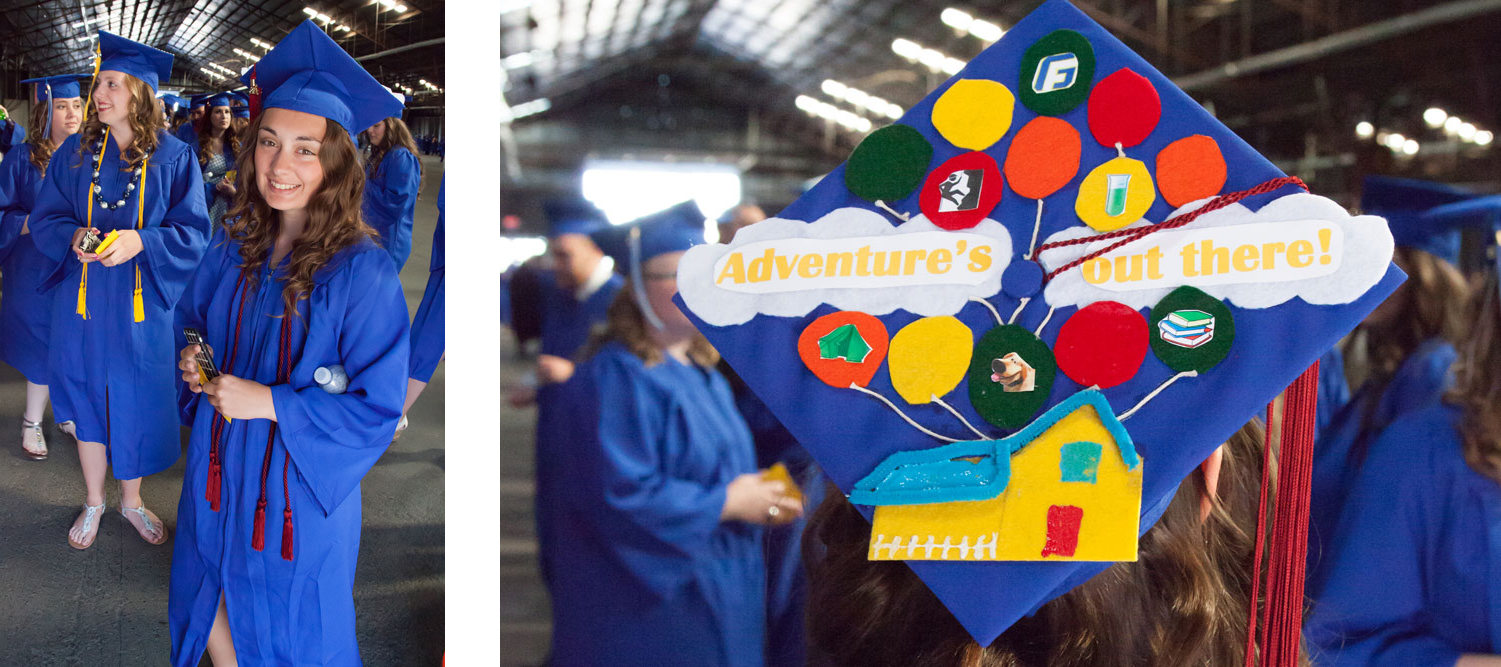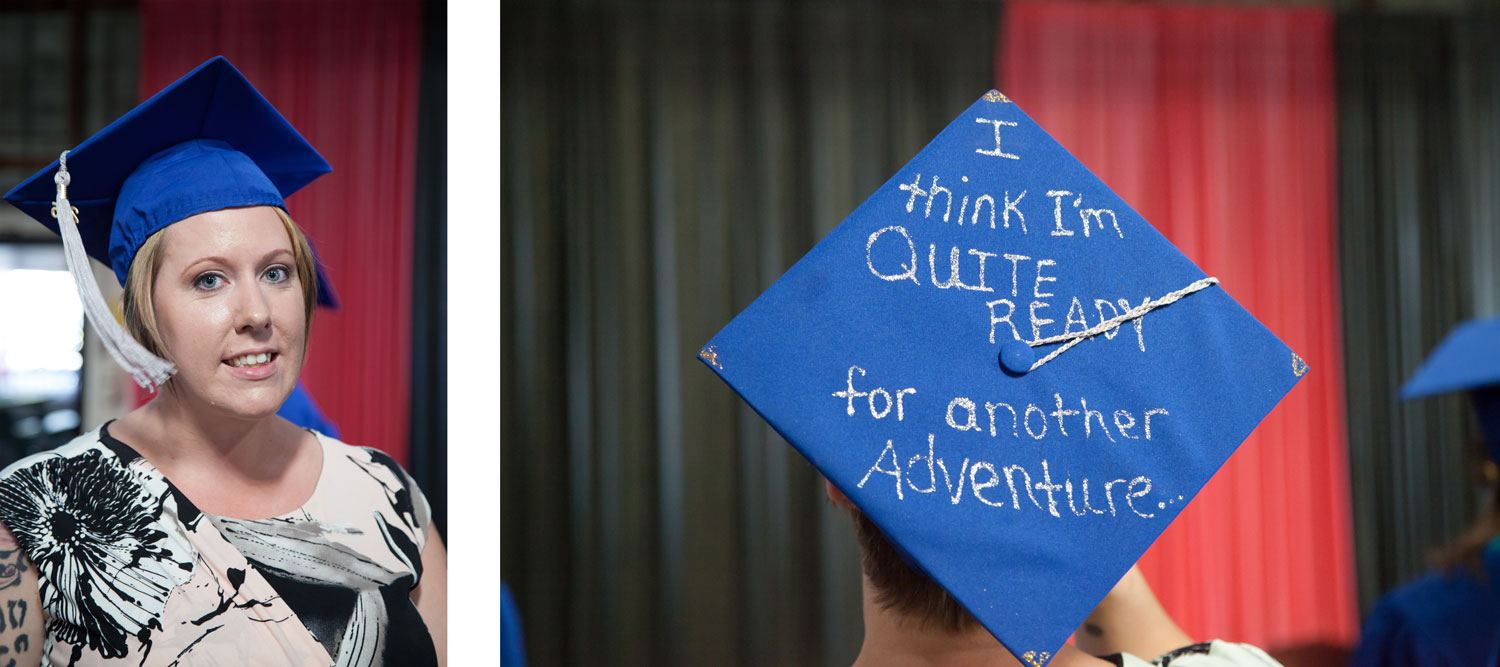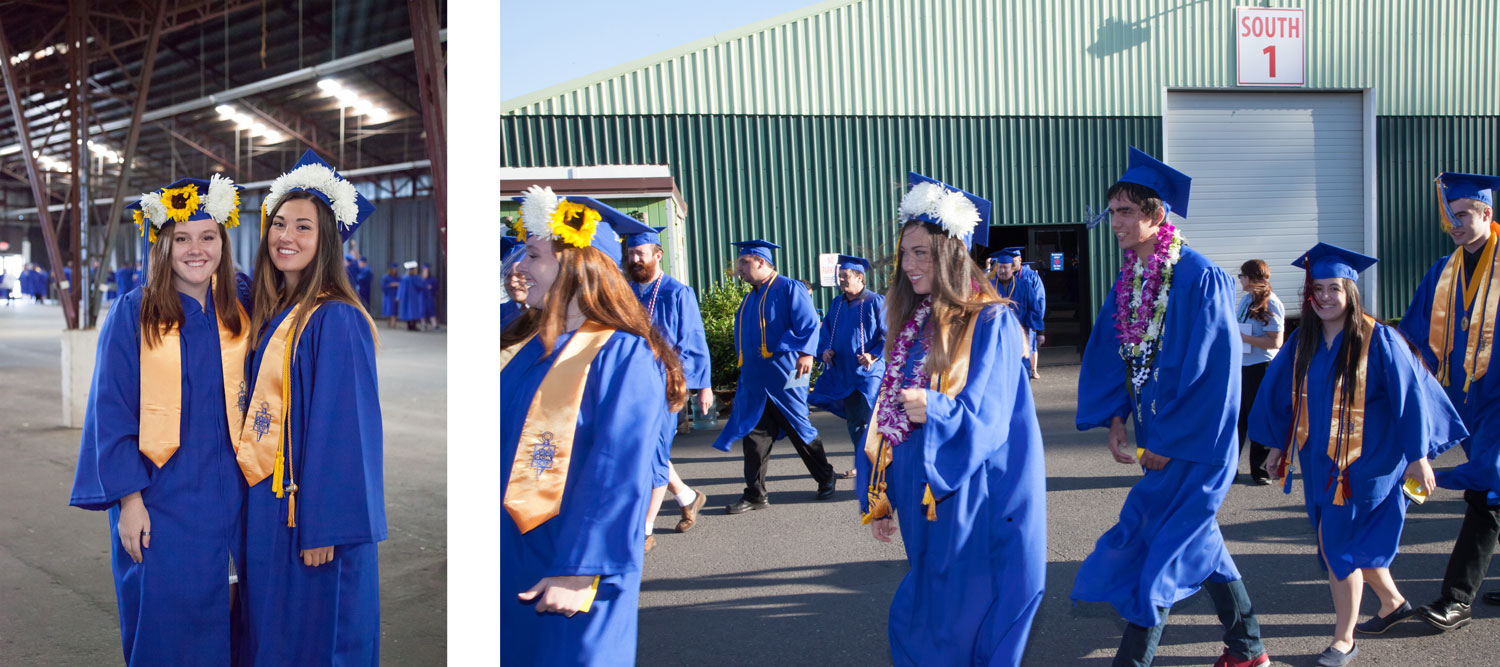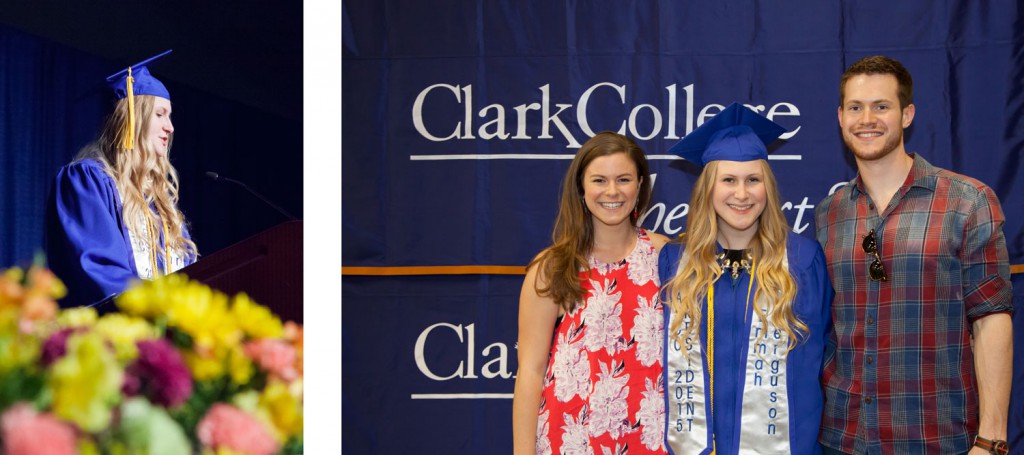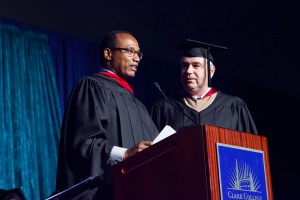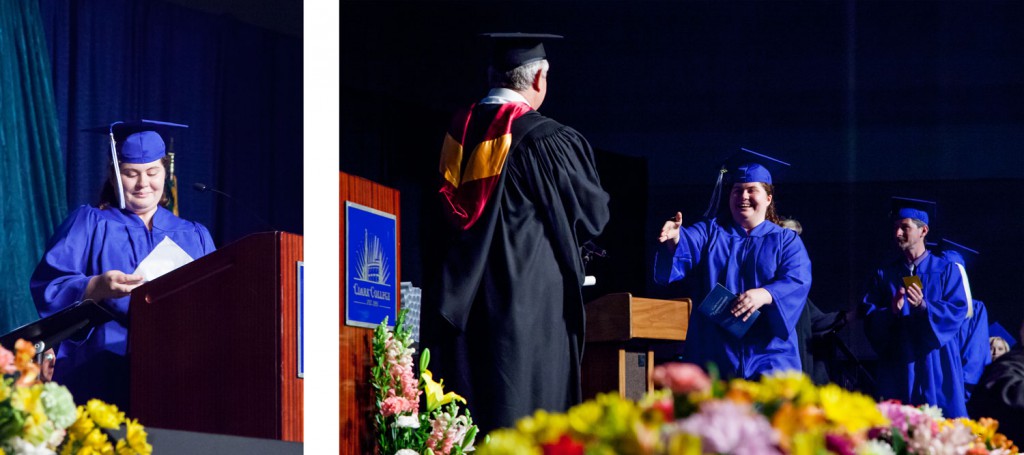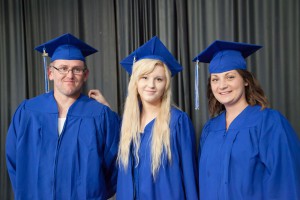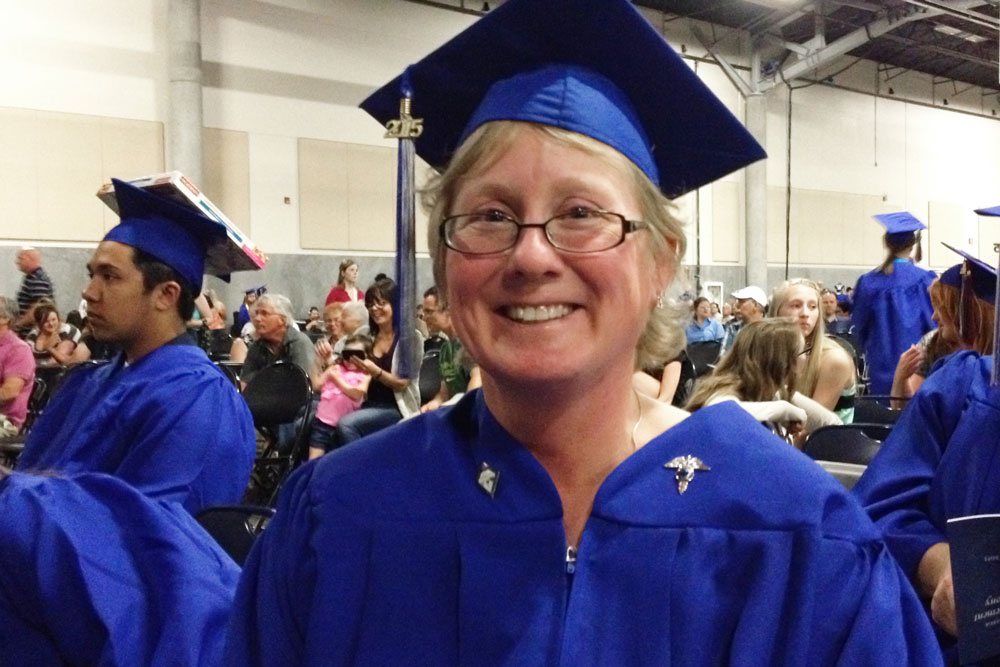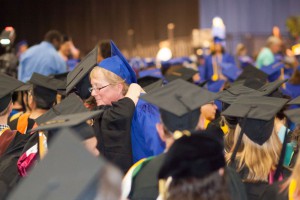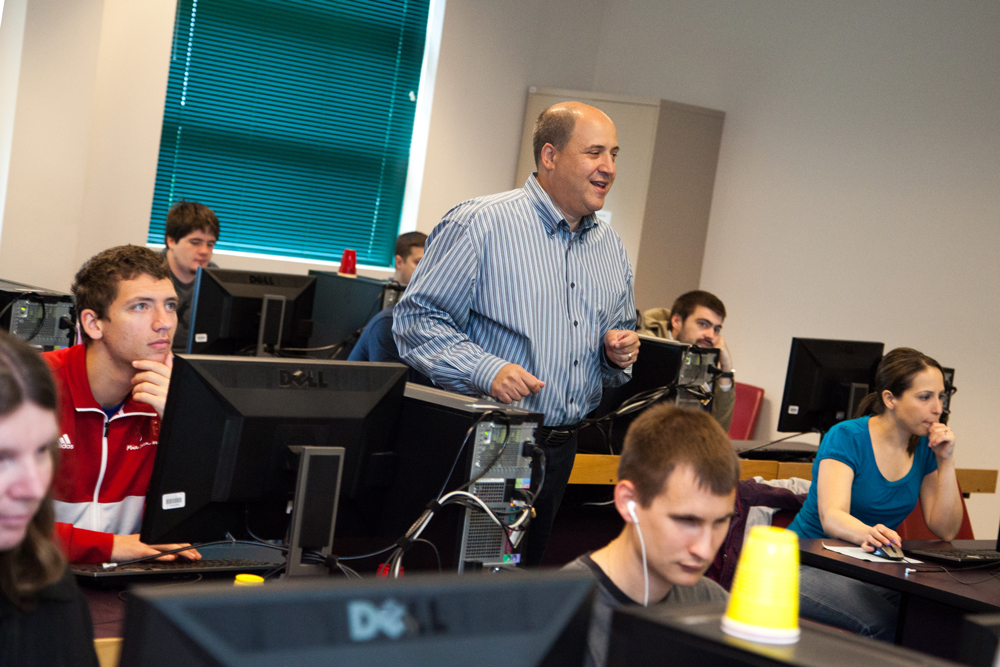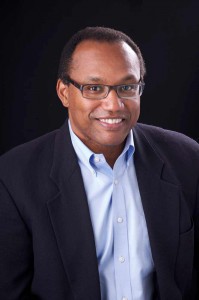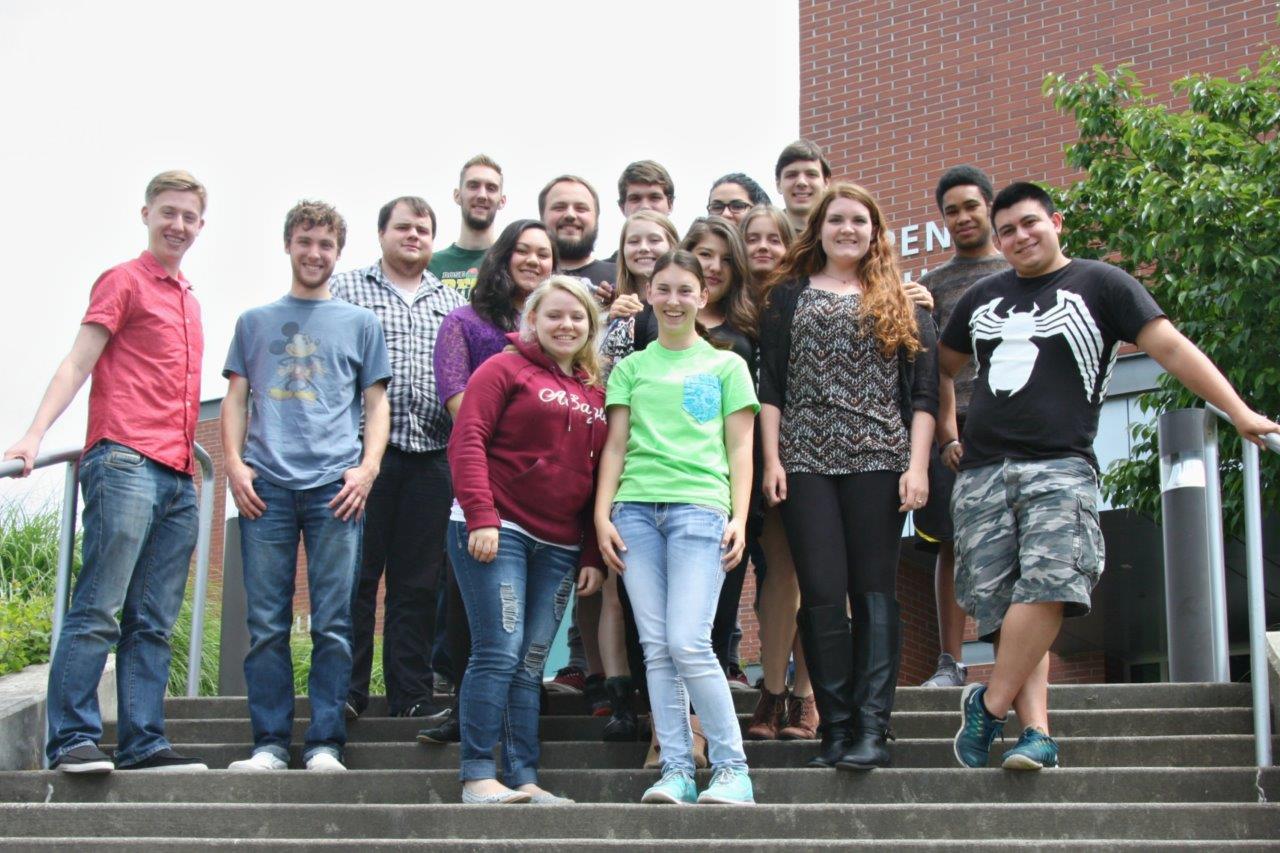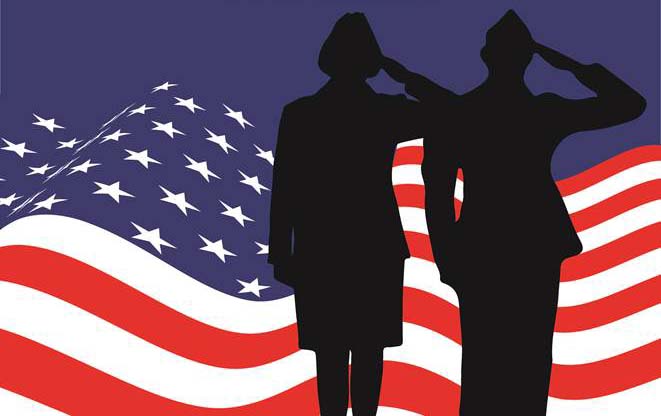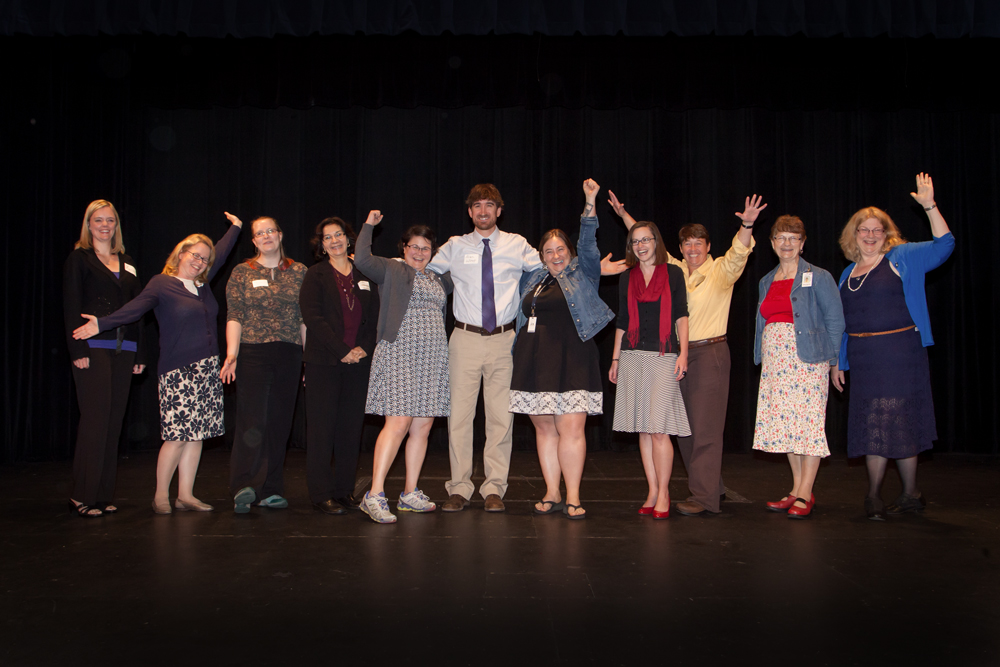
Left to right: Kristi Taylor (dental hygiene), Helen Martin (business technology), Joan Zoellner (mathematics), Linda Valenzuela (nursing), Ruth Trejo (chemistry), Alan Wiest (health and physical education), Bevyn Rowland (counseling), Shayna Collins (counseling), Ethel Reeves (nursing), Susan Nieman (nursing), and Sunnie Elhart-Johnson (business technology medical office).
Eleven outstanding educators are the newest members of the tenured faculty at Clark College. Shayna Collins (counseling), Sunnie Elhart-Johnson (business technology medical office), Helen Martin (business technology), Susan Nieman (nursing), Ethel Reeves (nursing), Bevyn Rowland (counseling), Kristi Taylor (dental hygiene), Ruth Trejo (chemistry), Linda Valenzuela (nursing), Alan Wiest (health and physical education, and Joan Zoellner (mathematics) were all honored at a reception on April 8 in Clark’s Gaiser Student Center.
“This is an important moment, both for these faculty members and for the college,” said Clark College President Robert K. Knight. “These talented and dedicated professionals have made a commitment to our college, and will help shape the college’s programs and community for many years to come.”
Tenure is awarded by the college’s Board of Trustees based on professional excellence and outstanding abilities in their disciplines. The granting of tenure is based on the recommendations of tenure review committees to the vice president of instruction, which are then forwarded to the president, who presents a final recommendation to the Board of Trustees. Recommendations are based on self-evaluations, tenure review committee evaluations, student evaluations, supervisory evaluations, and peer evaluations. The final decision to award or withhold tenure rests with the Board of Trustees.
The professors receiving tenure are:
Shayna Collins, Counseling
Shayna Collins earned her Bachelors in Women’s Studies and Psychology in 2006 and a Masters in Mental Health Counseling from Minnesota State University in 2009. She then moved to Portland and worked at the Center for Family Success and LifeWorks before joining Clark in 2012.
Shayna currently serves on the Advising Steering Committee and the campus CERT team. Other activities include Teaching Squares, FYE Mentorship program, several search committees, and planning for the annual Stress Awareness Day at Clark.
Collins believes in providing greater access to education for all, encouraging life-long learning, and creating a classroom environment that accommodates diverse learning styles. “It is my pleasure and honor to serve as a faculty counselor at Clark!” she says.
Sunnie Elhart-Johnson, Business Technology Medical Office
After attending a number of colleges as part of her undergraduate degree, including UCLA and The Evergreen State College, Sunnie Elhart-Johnson graduated with honors from Humboldt State University. Elhart-Johnson earned her Masters of Management and Organizational Leadership (MMOL) in 2009. Additionally, she has a current certification from AHIMA in Training ICD-10-CM/PCS and earned a certification in Patient Navigation and Advocacy this past fall.
Over the past 30 years, Elhart-Johnson has worked primarily in the medical field including previous experience as a unit secretary, EMT, medical transcriptionist, AHT, medical biller and coder. Non-medical experience includes corporate trainer, computer tech support, and a number of managerial positions. She has taught Medical Administrative courses throughout the past 14 years, earning the 2011-2012 Clark College Exceptional Faculty Award.
Elhart-Johnson has served as the Department Head for the BMED programs for over three years, working extensively in the curricular development needed to graduate students with the ability to successfully work in almost any healthcare environment, including billing and coding. The BMED Department is currently placing students in several local hospitals and outpatient settings as ICD-10 experts ready for the implementation this October. She currently sits on the Evergreen School Advisory Committee and the Skills Center Advisory Committee, and volunteers at a local free clinic.
“I’m excited about the HIIM degree beginning this summer, allowing students to sit for the highly sought for RHIT certification,” Elhart-Johnson says. “I look forward to leading changes in the healthcare industry through Clark’s programs and graduates, and to supplying our community partners with the ideal employees who have mastery in their field.”
Helen Martin, Business Technology
Helen Martin studied history at Leiden University in the Netherlands, and graduated with a doctorandus degree. She also earned an MBA with a concentration in marketing from Georgia State University in Atlanta, Georgia. She has previous work experience with Clark College, PTIGlobal, MindLink, Miami University of Ohio, and Websense.
“As a teacher, I see it as my job to help Clark Students acquire the skills to succeed in life, the confidence to apply those skills in a real world setting, and to make their learning experience effective and enjoyable,” she says.
Martin is a member of the Clark College CERT team, and has been involved as a mentor in the First Year Experience program.
Susan Nieman, Nursing
Susan Nieman is a graduate of the Clark College Nursing Program. She completed her BSN and MN at WSU Vancouver before joining Clark College as an adjunct instructor in 2005. Nieman has worked in psychiatric and emergency room settings and currently serves in the United States Army Reserve as a nurse with the 396th Combat Support hospital.
“My goal is to create additional volunteer opportunities for Clark College students to enrich not only their nursing experiences, but the lives of community members touched by our service,” she said.
Nieman serves as a board member and volunteer at the Free Clinic of Southwest Washington. She enjoys spending time with her family and doing outdoor activities on the water, especially outrigger canoeing.
Ethel Reeves, Nursing
Ethel Reeves earned her associate degree in nursing at Clark College in 1992, her BSN at WSU Vancouver in 2009, and her MSN at WSU Vancouver in 2013. Prior to coming to Clark College, she worked at Providence Hood River Memorial Hospital from 1987 to 2011 and at Columbia Gorge Community College from 2008 to 2012. She began teaching at Clark College as a Clinical Adjunct Faculty in fall 2011.
“As a first-generation college graduate, I pencourage and support the joy of life-long learning,” Reeves says. “My approach is to help reduce student anxiety so that their learning is maximized in any given educational setting.”
Reeves is a member of the Nursing Standard 1 Committee, Scholarship Committee, Speights Faculty Development Committee, and the Emergency Management Preparation Committee.
Dr. Bevyn Rowland, Counseling
Dr. Rowland earned her undergraduate degree in English from University of Portland, her Master of Arts degree (Counseling) and her Doctor of Psychology (Clinical PsyD) degree from Pacific University. She completed her APA-accredited internship at University of Idaho, and a postdoctoral residency at Cornell University. Dr. Rowland currently maintains a private practice in Salmon Creek at Evergreen Behavioral Health, where she is also working to create a nonprofit mental health center.
“Students arrive to college and counseling at varying levels of readiness, motivation, investment, and health,” said Dr. Rowland. “I adore helping students move toward change to support their success at Clark, as well as capitalize on strengths they already have, to create the life they want.”
In addition to Dr. Rowland’s work as a licensed clinical psychologist and her counseling and teaching roles on campus (teaching in HDEV and COLL departments), she is an active member of the Behavior Intervention and Threat Assessment (BITA) Team and the Cultural Pluralism Committee (CPC). She presents on mental health topics to student classes across divisions, and often provides training to staff and faculty through the Teaching and Learning Center.
Kristi Taylor, Dental Hygiene
Kristi Taylor earned her associate degree in Dental Hygiene from Clark College and her Bachelor of Science degree in Dental Hygiene through the degree-completion program of Eastern Washington University at Clark College. She began teaching at Clark in 2010, first as an adjunct instructor and then as a full-time temporary instructor. When she began her position as a tenure-track first-year lead instructor in dental hygiene, one of Taylor’s tenure goals was to complete her master’s degree in Post-Secondary and Continuing Education degree from Portland State University. She earned that degree in summer 2013.
“I have lived in Vancouver for the majority of my life and feel it a privilege to work for Clark College,” says Taylor. “Because I attended and graduated from Clark, I can use these experiences to mentor and facilitate dental hygiene students to fulfill their dreams.
“Creating an environment that is learner-centered, free from fear, and limited in stress, is ideal,” she continued. “A learner-centered environment allows students the opportunity to grow and retain information in a way that allows for optimal patient and community care.”
Throughout the past three years, Taylor has been an active leader of the dental hygiene students in the ASCC club and Students of the American Dental Hygiene Association (SADHA) by leading changes that have allowed students more access to serve their patients, college, and community. In her current teaching role, she is responsible for planning all clinical courses and many didactic courses throughout the first year of the students’ dental hygiene education.
Ruth Trejo, Chemistry
Ruth Trejo received her master’s degree in organic chemistry from the University of California, San Diego (UCSD). She taught at Miramar Community College and Southwestern Community College before coming to Clark College in 2011.
“I love to watch students conquer difficult subjects with assistance from me and their peers,” says Trejo. “I believe in the power of self-sufficiency and peer group work to learn chemistry.”
While in San Diego, Trejo was involved in community-outreach projects working with Green Chemistry and most recently Science Fun for Kids 9 to 99, where anyone could come to Miramar and learn science by enjoying physics or chemistry projects. Now that she is at Clark, Trejo volunteers as a coordinator for the annual Science Olympiad. She is currently working as the general chemistry lab coordinator for the Chemistry Department.
Linda Valenzuela, Nursing
Linda Valenzuela earned her associate degree in nursing from the College of the Sequoias in Visalia, California; her Bachelor of Science in Nursing from California State University, Dominguez Hills; and her Master of Public Health degree from Portland State University. She anticipates completing her Master of Science in Nursing degree from Western Governors University in August 2015.
Valenzuela’s previous employment includes Asotin County Public Health and Clark County Public Health. She currently is a relief staff member at PeaceHealth Southwest, a position she has maintained since 2005. She joined the nursing program at Clark as a full-time, tenure-track faculty member in 2009.
“I’ve worked as an registered nurse for over 30 years,” she says. “I’m also active in my community in home health and hospice activities.”
Valenzuela currently serves as the sixth-quarter lead for the nursing program. Her hobbies include gardening and quilting.
Alan Wiest, Health and Physical Education
Alan Wiest completed his undergraduate and graduate degrees in Exercise and Movement Science from the University of Oregon. He has taught Health, Physical Education, and Exercise Science for more than 14 years in Oregon, Massachusetts, North Carolina, and Washington. He teaches in the Health, Physical Education, and Fitness Trainer programs at Clark College. Wiesty holds certifications as an Aquatic Fitness Professional, Certified Personal Trainer, Certified Strength and Conditioning Specialist, and USA Weightlifting Sports and Performance Coach.
“I believe I learn as much from his students as they learn from me,” Wiest says. “I cherish my job, and I know I’m incredibly fortunate to be in a position of helping others pursue a lifetime full of health and happiness.”
Wiestserves on many Clark College committees; volunteers both at the college and in his community; commits to continuing education; and loves taking part in the faculty/staff-vs.-students intramural events at the college.
Wiest resides in Vancouver and can often be found hiking the trails carved into the Columbia River Gorge, Vancouver Lake, and the Coastal Trails. When time permits, he travels the U.S. in an attempt to climb the highest peak in all 50 states.
Joan Zoellner, Mathematics
Joan Zoellner earned her Bachelor of Arts in Mathematics from Humboldt State University and her Master of Arts in Mathematics from Indiana University. She has previous teaching experience at Portland Community College and began teaching at Clark College in 2010.
“I strongly believe that students in a math class should be doing math, not just watching the instructor work problems,” she says. “Deep, lasting learning occurs when students work together to solve challenging conceptual problems in class, and practice the procedural aspects of math outside of class. All of our students have the ability to succeed in math, and my job is to facilitate their growth as learners.”
Zoellner is involved in developmental mathematics education reform, and is in the process of developing a Math Review Boot Camp course for students who place low after taking the COMPASS test. You can also find Joan tutoring in the Math Help Center, and serving on several math department assessment committees.
Photo: Clark College/Jenny Shadley
